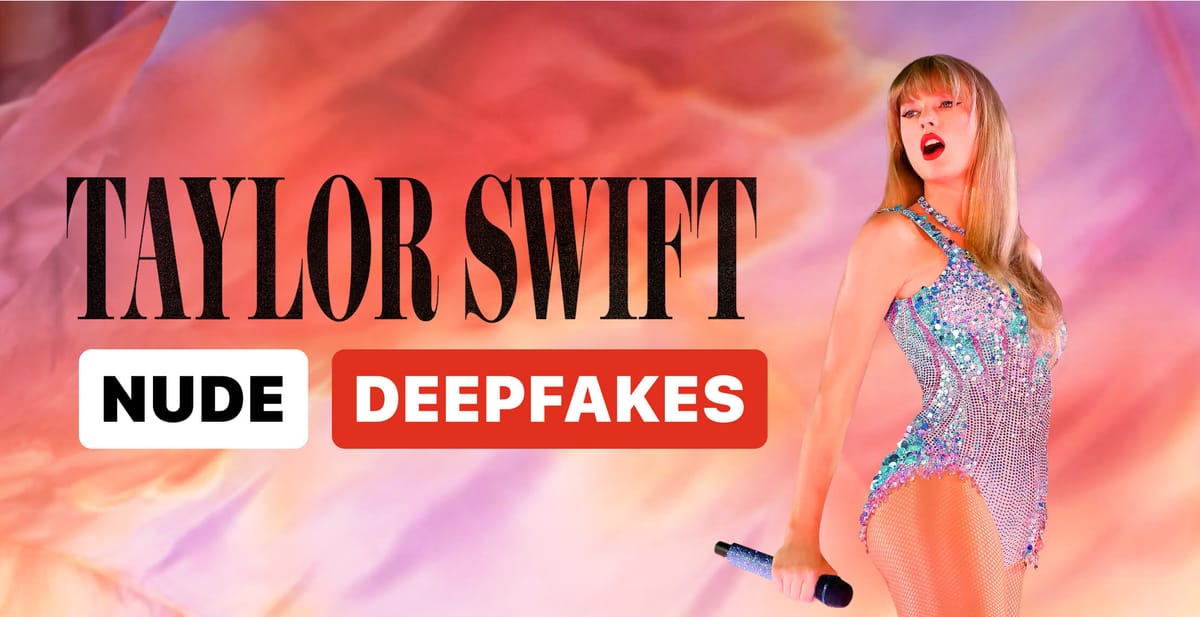
In a disturbing incident highlighting the escalating issues with AI-generated deepfake pornography, sexually explicit images of music superstar Taylor Swift went vial on X this week, eliciting widespread outrage, and thrusting the issue of unregulated AI into the spotlight.
The post in question gained over 45 million views, 24,000 reposts, and hundreds of thousands of likes before X suspended the verified user's account for policy violations. The post was live for around 17 hours, illustrating the immense scale and speed at which manipulated content spreads online.
Swift's massive fanbase aka Swifties, launched a counter-campaign, flooding hashtags associated with the explicit images with clips of Swift's performances in an attempt to suppress the spread of the deepfakes, but the damage was done.
This incident underscores the growing challenge of moderating AI-generated fake content online. While X's policies explicitly ban deepfake pornographic content, the platform has faced criticism for their inability to effectively and timely address violations.
With such a high profile violation, some lawmakers took the opportunity to weigh in. Senator Martin Heinrich of New Mexico and Representative Tom Kean of New Jersey both expressed concerns about the unregulated nature of AI and are proposing legislative measures for better control. Heinrich highlighted the need for Congress to act on AI-related risks, while Kean promoted his AI Labeling Act, which mandates clear indications for AI-generated content.
This is precisely the risk we’re facing with unregulated AI, and it’s exactly why Congress needs to act to make sure this kind of stuff is illegal. https://t.co/84HojghOXn
— Martin Heinrich (@SenatorHeinrich) January 25, 2024
The push for regulatory solutions, however, is met with complex challenges, as noted by Katharine Trendacosta of the Electronic Frontier Foundation. She points out the legislative difficulties in balancing the need to combat deceptive AI with preserving free expression and digital speech rights.
Laws that seem common sense on the surface end up impacting far more than deepfakes. Sharing an SNL parody could become a crime.
Another layer of complexity is the practicality of enforcement. Platforms like X are inundated with content, making consistent and effective moderation a Herculean task. Additionally, the very technology at the heart of this issue, AI, presents its own set of challenges. Proprietary models like Midjourney, Adobe Firefly, OpenAI's DALL·E 3, and Microsoft Designer have built-in safeguards against misuse, yet, bad actors have still found ways to circumvent these measures. Open-source alternatives like stable diffusion however have no such restrictions.
The implications of this incident extend beyond just the realm of celebrity privacy. It highlights the broader societal and ethical dilemmas posed by rapid advancements in AI technology. As AI-generated deepfakes become increasingly sophisticated and easier to produce, the lines between real and fake blur, raising serious concerns about privacy, consent, and the spread of misinformation.
This incident should serve as a stark reminder of the urgent need for a concerted effort to address the challenges posed by AI-generated content. If it takes a celebrity scandal to prompt action, so be it.

